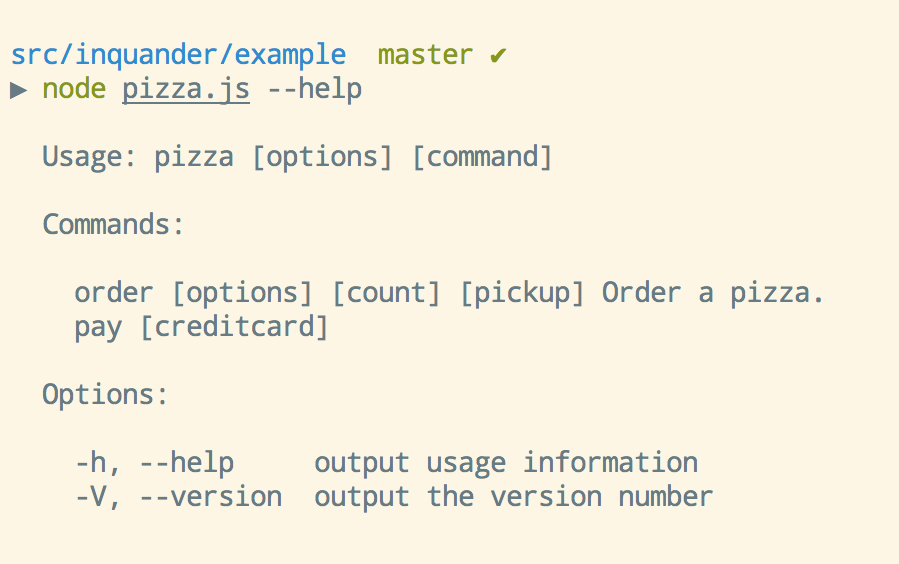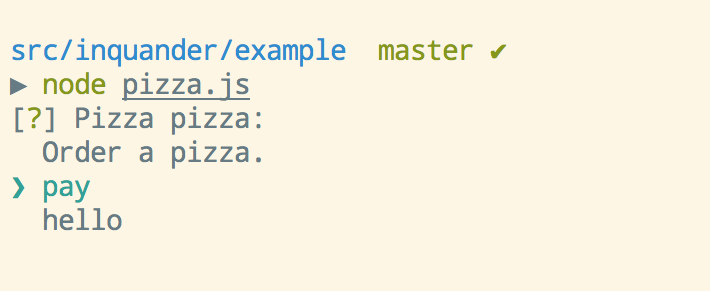inquander
v1.1.1
Published
Inquirer for commander. If no arguments and options are passed to your commander app, it runs inquirer.
Downloads
492
Readme
inquander
Inquirer for commander. This module takes two awesome modules and connects them.
If no arguments and options are passed to your commander app, it runs inquirer. For all commands, arguments and options defined in your commander app.
If you call your module with arguments it acts like a normal commander tool.

But if you call it without any arguments or commands it will parse your definitions and runs it using inquirer.

Usage
Instead of calling program.parse you need to call inquander.parse.
var program = require('commander'),
inquander = require('inquander');
program
.command('hello [name]')
.action(function(name) {
console.log('Hello', name);
});
program
.command('pay [creditcard]')
.action(function(creditcard) {
console.log('Please come again.');
console.log(creditcard);
});
inquander.parse(program, process.argv);Options
Message and Default Command
The root message and default command options define the inquirer root behavior:
inquander.parse(program, process.argv, {
message: 'Little Caesar\'s Pizza Ordering',
defaultCommand: 'pay'
});Type Overrides
The commander api doesn't identify special types (password, list, editor, etc). So to specify field types specifically for inquirer, use the overrides option:
inquander.parse(program, process.argv, {
overrides: {
'creditcard': {
type: 'password'
},
'pickup': {
type: 'checkbox',
choices: ['one', 'two']
}
}
});Hidden Fields
To hide a field from the interactive view, use the hidden option:
inquander.parse(program, process.argv, {
hidden: ['notininquirer']
});For more examples take a look into the example folder.
Advanced
Run Command
Inquander.runCommand(command, forceInteractive) allows you to manually trigger a generated
command.
Detecting Interactive Mode
To enable different behavior for interactive and non-interactive modes,
inquander defines a flag in program.usingInquirer which indicates
whether inquander is using inquirer or commander.
Promises in Overrides
One can also pass Promises in for any value inside of the overrides object, for instance:
``Javascript inquander.parse(program, process.argv, { overrides: { 'creditcard': { type: 'password' }, 'pickup': { type: 'checkbox', choices: Promise.resolve(['one','two']) } } });
